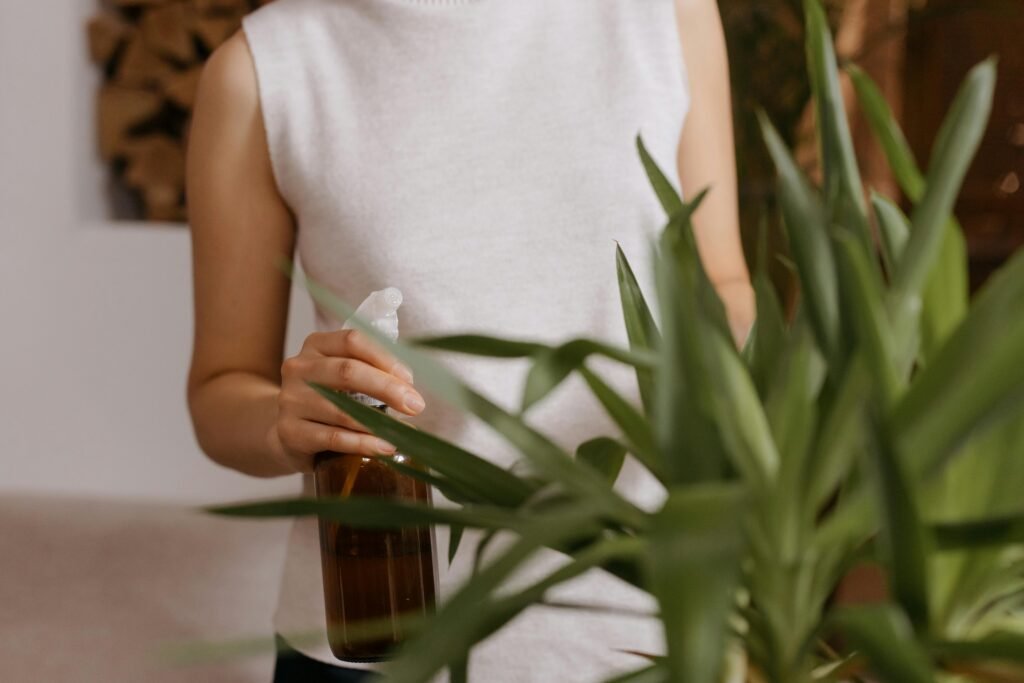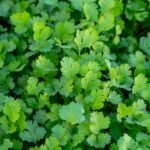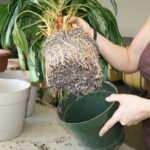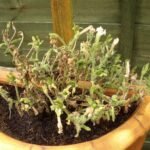Dealing with pests in your home can be a real hassle, but reaching for harsh chemicals isn’t your only option. Plant-based pest repellents are a safe, eco-friendly way to keep bugs at bay, and they’re surprisingly effective. Whether it’s essential oils, kitchen herbs, or DIY sprays, there are plenty of natural methods that work just as well as store-bought sprays—without any of the toxic fumes. Here’s a guide to some of the best plant-based pest repellents and how to use them around your home.
Why Choose Plant-Based Pest Repellents?
Going natural with plant-based pest repellents has its perks. Here are a few good reasons to consider them:
- Safer for Pets and Kids: Many chemical pesticides are toxic, especially to pets and young children. Natural solutions, on the other hand, are generally safe.
- Eco-Friendly: Plant-based repellents break down more easily than synthetic chemicals, which makes them kinder to the environment.
- Better Indoor Air Quality: Chemical sprays can release harsh fumes, while natural alternatives tend to smell fresh and clean.
- Just as Effective for Common Pests: Many plants and oils are powerful deterrents against ants, mosquitoes, flies, and more.
If you’re looking for simple ways to make your home a bug-free zone while staying green, these plant-based options are worth trying.
Essential Oils: Small But Mighty Pest Fighters
Essential oils are concentrated plant extracts with natural bug-repellent properties. Here are a few oils that are particularly good at keeping common household pests away:
- Peppermint Oil
Peppermint is a powerful repellent for ants, spiders, and even mice. Its strong scent acts like a “keep out” sign for unwanted critters.- How to Use: Mix 10–15 drops of peppermint oil with water in a spray bottle and spritz it around windows, doorways, and other entry points. You can also dip a cotton ball in peppermint oil and place it in areas where you’ve spotted pests.
- Lavender Oil
While humans love lavender, moths, mosquitoes, and flies are repelled by it. Plus, it leaves your home smelling lovely.- How to Use: Combine a few drops with water and spray it on linens, curtains, and other areas where pests might hang out. Dried lavender sachets are great for closets and drawers, too.
- Tea Tree Oil
Known for its antimicrobial properties, tea tree oil keeps ants, roaches, and flies away.- How to Use: Mix 10 drops of tea tree oil with water in a spray bottle and apply it to problem spots. Be cautious using tea tree oil around pets, though, as it can be harmful if ingested.
- Eucalyptus Oil
This oil has a fresh, menthol-like scent that bugs can’t stand. It’s especially useful for repelling flies and mosquitoes.- How to Use: Spray eucalyptus oil diluted with water around your home, or add a few drops to a diffuser to keep pests at bay while freshening up your space.
Herbs That Double as Pest Repellents
You don’t have to rely on essential oils alone. Many common herbs are also effective at keeping pests out of your home. Here are a few that pull double duty as both cooking ingredients and bug deterrents:
- Basil
This easy-to-grow herb does wonders at keeping flies and mosquitoes away.- How to Use: Place a pot of basil by windows or in the kitchen. To boost its effectiveness, occasionally crush a few leaves to release its scent.
- Rosemary
Rosemary’s strong aroma deters mosquitoes and other flying insects.- How to Use: Keep rosemary plants near entry points, or burn dried sprigs on your patio for natural mosquito control during outdoor gatherings.
- Mint
Mint is great for repelling ants, flies, and mosquitoes. Be careful, though—mint spreads quickly, so it’s best kept in a pot.- How to Use: Place mint pots around your home, or dry the leaves and sprinkle them where you see pests.
- Sage
Known for its earthy scent, sage helps ward off mosquitoes and other bugs.- How to Use: You can burn dried sage leaves to repel mosquitoes outdoors or keep fresh sage in the kitchen to keep ants away.
DIY Plant-Based Sprays
If you like to make things from scratch, try these simple, DIY plant-based sprays. They’re easy to mix up, effective, and use ingredients you probably already have:
- Vinegar and Essential Oil Spray
This blend works well against ants, flies, and other crawling insects.- Ingredients: 1 cup of white vinegar, 1 cup of water, 10 drops of peppermint or tea tree oil
- Instructions: Mix all ingredients in a spray bottle, shake well, and spray along windowsills, door frames, and anywhere you see bugs.
- Citrus Peel Spray
Citrus peels contain limonene, a natural pest deterrent.- Ingredients: Peels from 2–3 oranges or lemons, 1 cup of white vinegar, 1 cup of water
- Instructions: Soak the citrus peels in vinegar overnight, then strain and dilute with water. This spray works well for ants and aphids and smells fresh and clean.
- Garlic and Pepper Spray for Plants
Perfect for protecting garden plants from pests like aphids and beetles.- Ingredients: 1 head of garlic, 1 teaspoon of cayenne pepper, 2 cups of water, a drop of dish soap (to help it stick)
- Instructions: Blend the garlic and pepper with water, strain, add a drop of dish soap, and pour into a spray bottle. Use on garden plants every few days.
Diatomaceous Earth: A Natural Powder with Powerful Effects
Diatomaceous earth is a non-toxic powder that’s great for indoor pest control. It’s safe for humans and pets but deadly for insects with exoskeletons, like ants and roaches.
- How to Use: Sprinkle diatomaceous earth along windows, doorways, and in cracks where pests might enter. Reapply after cleaning or if it gets wet.
Plant-Based Pest Repellents for a Cleaner, Greener Home
Switching to natural, plant-based pest repellents doesn’t just make your home a safer place; it’s also more sustainable and, often, just as effective. With a few essential oils, some fresh herbs, or a homemade spray, you can keep your home pest-free and chemical-free. Give a few of these ideas a try, and you’ll have a fresh-smelling, bug-free sanctuary in no time! 🌿






